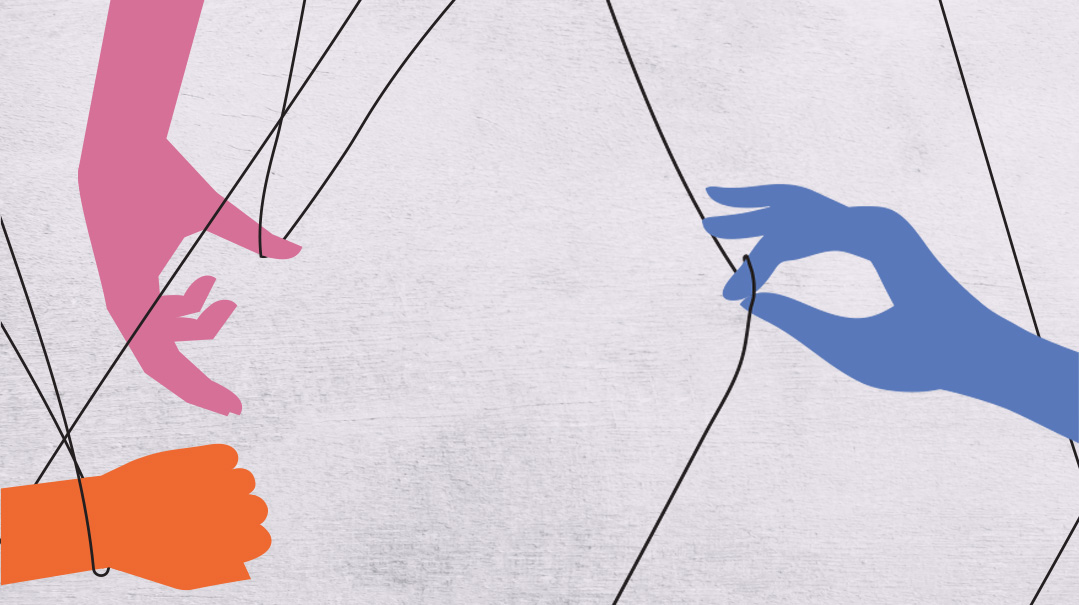Fallout: Chapter 45

The pilot’s intercom crackled to life. “Slight delay, soldiers. Victor Charlie is giving us a warm welcome”

September 1964
Chrissie!
The devil incarnate, if Annie were to accept Alice Burton’s assessment. The rebel, the fiend who’d led Marjorie, and probably countless others, to abandon their parents, their fine, upstanding communities and all-American lives.
Since Marjorie’s disappearance, Mrs. Burton had become a frequent guest at Annie’s home. Though at first Annie had been put off by her anger, rancor, and constant criticism of everyone around her, she’d soon decided that Alice Burton was not so much an evil woman as a terribly unhappy one, searching in material success and in the admiration of her neighbors for joy and meaning — and finding neither.
Since Marjorie’s parents had decided not to share their daughter’s disappearance with anyone except the private detective who Fred Burton had hired, Annie quickly realized that she’d become Mrs. Burton’s sole confidante. She’d listened patiently to Mrs. Burton’s recriminations, and tried, ever-so-gently, to show her the good in others, and especially in her wayward daughter. “In her own strange way, she loves Majorie,” Annie told Abe, when he asked why she let that bitter woman take up so much of her time. “I’m trying to teach her how to show that love.”
“Well, sweetheart, there’s no better teacher than you for that,” he answered, and he didn’t bring up the issue again.
Now here was a postcard from Marjorie’s friend, who’d apparently vanished from the face of the earth. And in that postcard, which Papa silently handed to her, was....
“Papa! This Chrissie has written her address. Maybe Marjorie—”
Papa finished the sentence for her. “Maybe – and it seems there is a good chance – maybe Marjorie is there in—” he looked again at the crumpled paper, “San Francisco.”
Artie jumped up and pulled the postcard from Yeruchum’s fingers. “It’s postmarked Haight-Ashbury. That’s a California neighborhood,” his voice was grim, “where all the hippies are beginning to hang out. Lots of runaways.”
“So Papa, what should we do?”
All mischief and joy had vanished from Yeruchum’s face, replaced by a stern and determined seriousness. “We’ve got to call Fred Burton, now. And then... I’m going to go and look for her.”
T
he sun’s rays struggled in through the dirt-streaked windows of Chrissie’s crash pad. It patted Marjorie’s cheeks in a gentle wakeup call.
She opened her eyes and, still half asleep, began to hum Artie’s morning song:
Boker Tov, Boker Tov
Wake up, wake up, it’s almost eight!
Boker Tov, Boker Tov
Wake up, wake up, or you’ll be late!
Modeh Ani, Modeh Ani
Thank You, Hashem, that’s what we say.
Modeh Ani, Modeh Ani
Thank You, Hashem, for a great new day!
A great new day.
Yeah, sure.
Then came the tears.
A
hearty breakfast — fresh eggs fried in butter, compliments of Mr. Lefkowitz’s grocery — cheered Marjorie up somewhat. She managed to pass the Mustang, parked near Chrissie’s apartment, with only a deep sigh. On this Sunday morning, the Haight was sleeping off its Saturday night revels; the parties were over, the bars and coffee shops shuttered, the occasional drunk or druggie crumpled up in a heap on the sidewalk.
Not surprisingly, the store was quiet when Marjorie walked in. What was surprising was Danny sitting behind the counter, near the cash register.
“Hi, stranger. Looking for Swiss cheese, or some fresh bananas? Or maybe some meaning in life?”
Marjorie couldn’t help but grin. “Bananas sound great. Meaning in life — I think we’re all out of that.”
Danny’s voice grew deeper, more serious. “Look here, Margie, isn’t it time to grow up a little?
“And what, exactly, do you mean by that?”
“You’re a big girl, Marge, a college grad. Make some plans. Things are changing for women, why don’t you think about a career? Or if you want to be domestic, find yourself a nice husband and raise some nice kids.”
“I’ll put it on my things-to-do list,” Marjorie retorted, as she turned away.
“Hold on, babe. Don’t get mad. Look,” Danny soldiered on. “Can I give you some advice?”
“So long as you don’t expect me to follow it.”
“Fair enough. So they make all us accounting majors study bookkeeping. You’ve heard of a balance sheet?”
“Yes, I’m not quite the dodo you think I am.”
“Not a dodo. A mixed-up redhead. Anyway, why don’t you make a balance sheet?”
“Huh?”
“I mean it. A balance sheet of your life. What do you love, what do you hate? What are your goals and how will you achieve them? Add up the good stuff, subtract the bad and you’ve got the bottom line: meaning in life! Honest, Margie, I’ve done it, and it’s worked.”
Mr. Lefkowitz, who’d been putting price labels on a recently arrived shipment of StarKist tuna cans, walked over and slapped his son on the back. “What nonsense is this boy of mine filling you with, Margie?”
“The kind of nonsense they should teach you in college… and don’t,” Danny retorted. “Okay, enough lecturing. I’ve got to get home and hit the books — big exam this week. Will you think about what I’ve just said?”
“Maybe.”
“I just want to make sure you’re all right and won’t go jumping into lakes anymore.”
“Oh, me? I’m cool. Everything’s cool. Super cool.”
“Well, if things get uncool, you can always talk to me to help you figure things out.”
“Cool, schmool, let’s get to work, Margie. You take the register. I want to finish up those tuna cans.”
A
balance sheet of her life. Her choices. What she loved and what she hated. Weird idea, but typical of an accounting student. Could it possibly help her get out of this crazy confusion of questions and choices that she’d somehow landed herself in?
Well, if she was going to do something so nuts, she might as well start right here, at the cash register of a corner grocery.
What do I love? Well, I like music and hitting the bongos. Should I become a rock star?
“The Wonder Bread is in the back row, to your left, Mrs. Richards. Twenty cents a loaf.”
Don’t be such a doofus, Marge. You know the rock scene, they’re all flying high on drugs. You want to wind up lying in the street? Or eating in soup kitchens?
Okay, try again. What will make me happy?
“A quart of milk, a dozen eggs, and a package of Domino sugar? That will be…” — figures hastily scribbled on a brown bag, “one dollar and ninety-four cents.”
Dunno. I remember… one day… at the Levines’… taking care of the kids… I felt kind of… happy.
As she sliced cheese and packed brown bags for the growing number of customers, the memories came: a flood, a tidal wave, enveloping her. Levine family games on the beach. Mrs. L., still weak, but insisting on going with Malka when she was giving birth. Artie, crying for a father he’d hardly known. The Passover Seder, with the children singing Artie’s song: Mama and Daddy, we’re so happy to be/ Part of this great and fun family.
“Marge, would you mind letting me take care of the cash register? I still have two cases of tuna to stack, and my back is killing me.”
“Sure, Mr. Lefkowitz.”
A balance sheet of my life?
Pick up a can. Place it on the shelf. Pick up a can….
Think.
Okay, Marge. So you want a great and fun family. Ha! A family like Mother and Father, who’ve probably forgotten all about you? Who never cared about you, except to criticize?
An idea: foreign, strange, almost frightening.
If you don’t have a family, Marjorie Burton, why don’t you make your own?
A knife, piercing her heart, twisting it into something strange and bloody, and dead.
I can’t.
I don’t know how.
Twenty minutes later, when the morning rush had quieted down, Sam Lefkowitz went to see how his employee was doing, if she needed some help. He found her sitting on the floor next to the shelves, staring ahead, dry-eyed, a look of ineffable sadness on her face.
A
nnie was the first to speak after Papa’s startling announcement.
“You’re going to go find her? Papa, you can’t!”
Her words were followed by the voices of almost everyone in the room.
“Zeide, if you go, I’m going with you!” Artie declared, waving the postcard back and forth as if it were an American flag on the Fourth of July.
“Why should either of you travel thousands of miles across the country?” Moe interjected. “Burton’s been paying a fortune to a private eye. Let him go, he’s a specialist in tracking runaways.”
“Moe is right. A cross-country trip, hotels, no kosher food — at your age—” Abe hadn’t finished his warning when Yeruchum held up a hand.
“Kinder, I need quiet. I am going to call Fred Burton right now. If he wants to go with me, fine. If not, I am going myself. Artchik, I don’t think it would be wise for you to come.”
Moe placed a restraining hand on Artie’s shoulder, “We’ll talk about it later,” he said in a half-whisper.
“I will do everything,” Yeruchum continued, his tone serious and resolute, “absolutely everything I can, to rateveh der kindt, to rescue the child. To find Marjorie Burton.”
While Yeruchum spoke with Marjorie’s father, Moe took Artie into a corner. “Art, this is a complicated situation,” he explained. “You don’t know what Marjorie has been through, what’s she’s done, what she wants. You being there will make things even harder to sort out.” Artie’s lips tightened, but he nodded slowly.
In less than an hour, the plans were finalized. Tomorrow, Yeruchum Freed and Fred Burton would fly out together on TWA’s cross-country flight. At Burton’s insistence they booked a room in the Fairmont, one of San Francisco’s most elegant hotels. They would stay there until they could bring Marjorie back home.
T
hirty-six long hours. No Eskimos, igloos, or polar bears in Alaska. No pagodas or elaborate tea ceremonies in Japan. Just the back of a guy’s neck (slight mole on the left, stiff with either tension or the uncomfortable seating), two more guys, one on each side, who were happy to take his food trays, huge buildings where they could stretch their legs while refueling. The roar of engines, anxiety alternating with deep boredom. No one paid Mutty much attention, though his constant refusal of the army rations raised a few eyebrows.
And now they were circling over Saigon. Gone was boredom and even fear as the plane began its descent to Tan Son Nhut Air Base.
The pilot’s intercom crackled to life. “Slight delay, soldiers. Victor Charlie is giving us a warm welcome.”
Who in the world is Victor Charlie?
Mutty’s seatmate, who’d told him earlier that his brother had served the year before in Nam, saw his puzzled look. “Victor Charlie. VC — Viet Cong. The guys who want to kill us.”
Mutty realized that the sounds that were growing louder were not coming from the engine. Monotony came to a screeching halt as the plane banked sharply to the left, gained altitude, and began circling, far away from the artillery fire. The pilot’s voice came on again, calming and relaxed, “We’ll just wait ’em out, boys.”
Mutty leaned over his seatmate to stare out the window. Nothing much to see: some mist, gray images on the ground that might have been airplanes, puffs of black smoke rising from the ground.
The slow minutes somehow passed. The mist cleared, the smoke dissipated, and they were going down, down.
Once more, the intercom. “All quiet, boys. We’re in South Vietnam. Welcome home.”
To be continued…
(Originally featured in Family First, Issue 889)
Oops! We could not locate your form.



